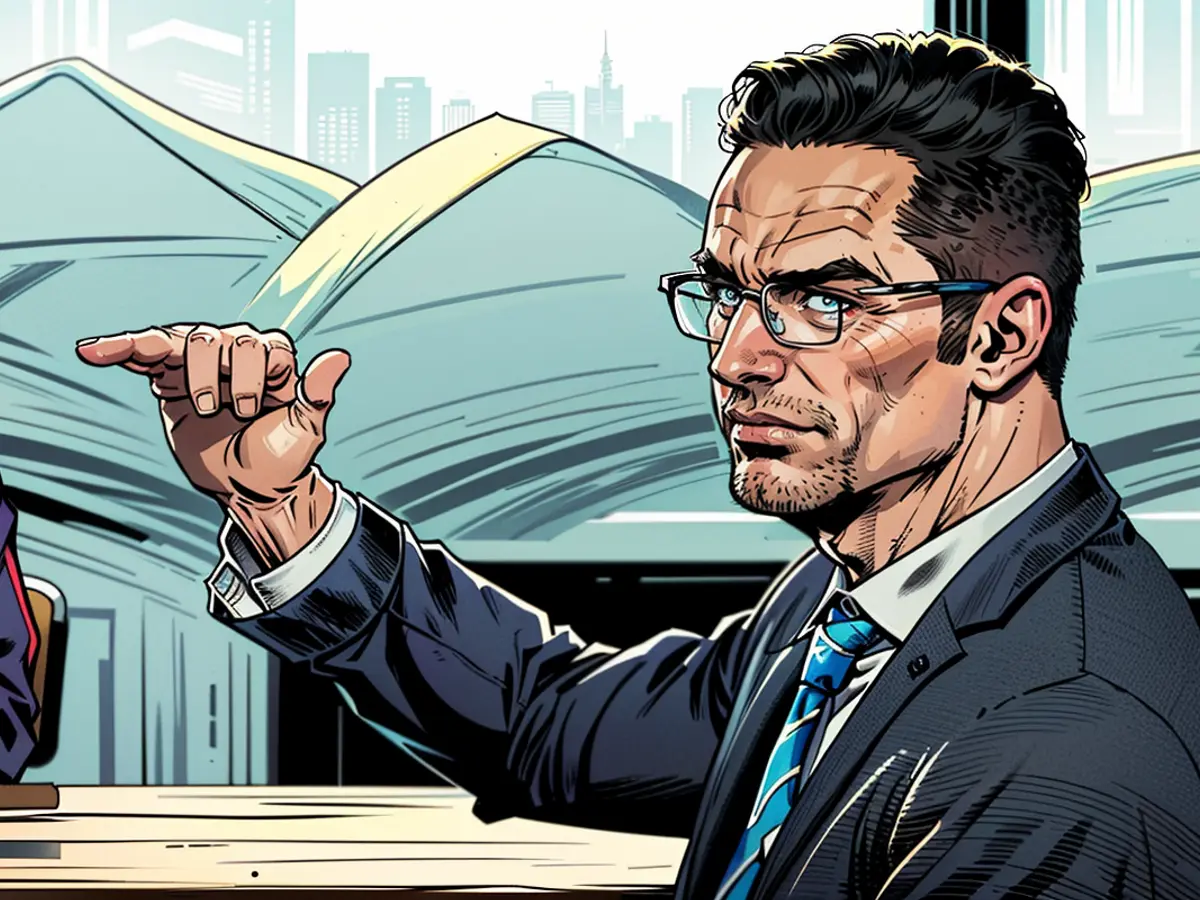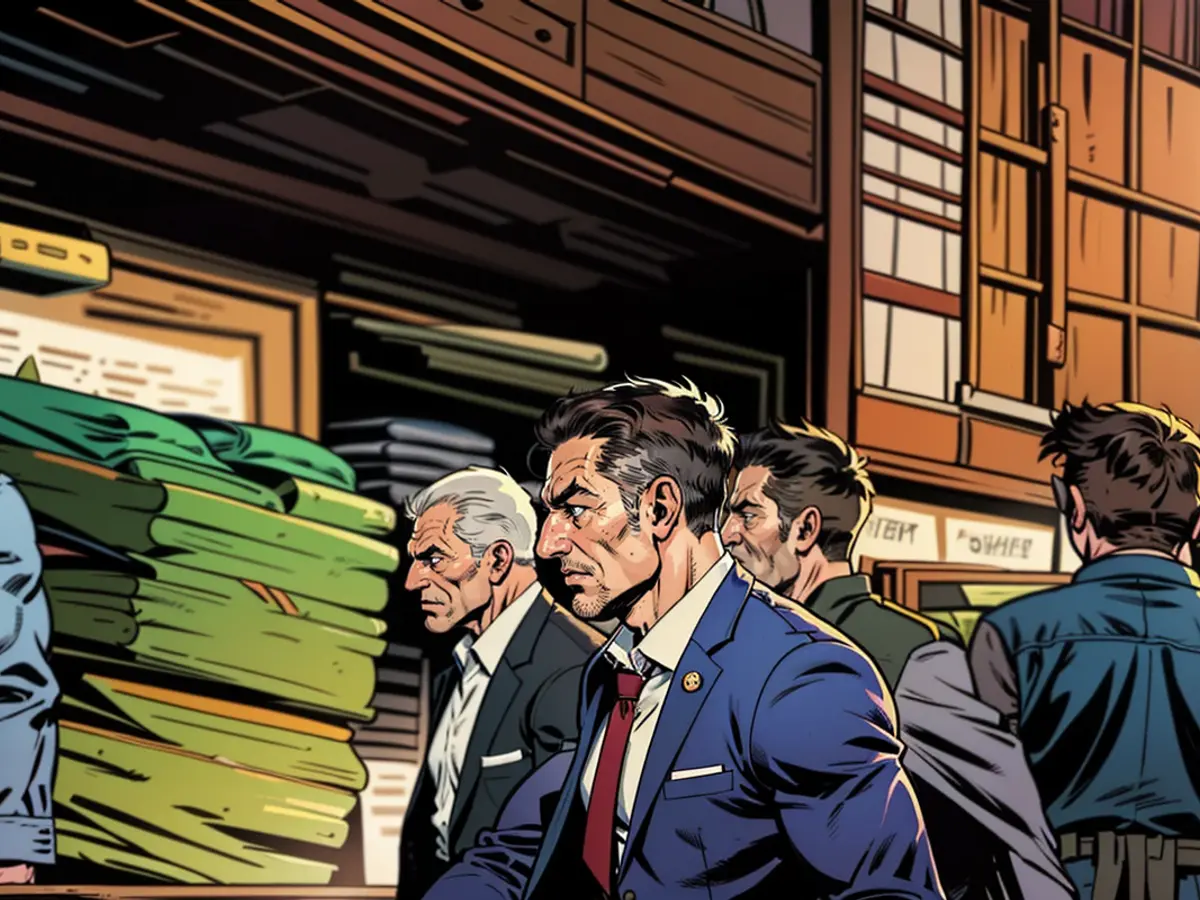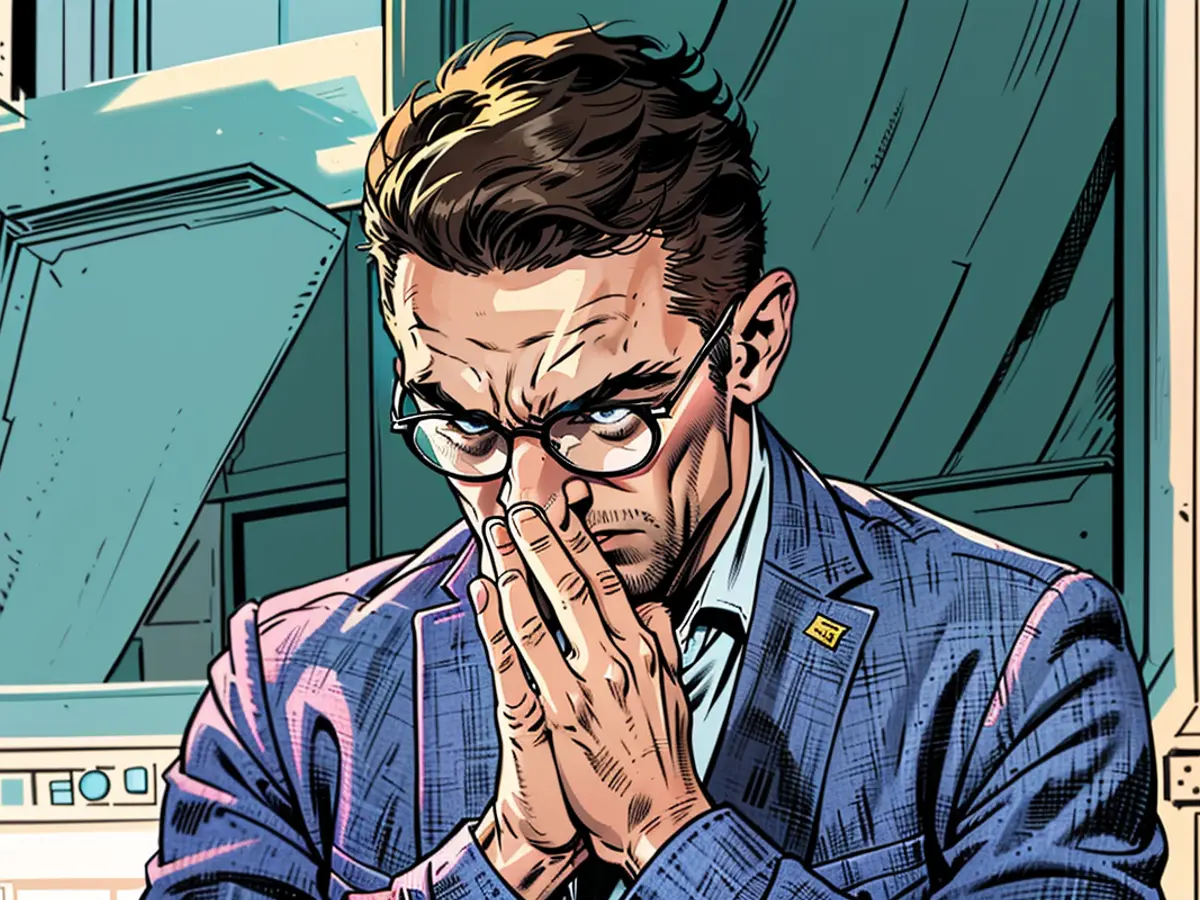- Titled individual: Christian Tischner, the Triumphant Overcomer of the Fishingrod
In Erfurt's screens, a surge of blue lights as Hoecke triumphantly raises his arms, his supporters echo his name in cheers. The Thuringian AfD celebrates their top candidate, expected to be the dominant force in the upcoming state election on Sunday, performing exceptionally well among voters there compared to previous years.
However, the celebration may be premature, for a contrasting scene is unfolding just over an hour and a half away, in Greiz. It was here that Hoecke sought to claim a direct mandate, aiming to silence those within the party who speculated that the AfD could gain more civic voters without him.
Unfortunately for Hoecke, this plan did not come to fruition. Instead, CDU politician Christian Tischner emerged victorious, dealing Hoecke a significant blow in his capacity as the state leader. How did this come to pass?
Hoecke expected an easy win in Greiz
Hoecke resides in Eichsfeld and has never had a realistic chance of winning the direct mandate there, given its strong Catholic conservative base, which consistently favors CDU candidates. Recognizing this, he strategically chose to compete in Greiz II for "electoral tactical reasons," as per the AfD state executive board.
Initially, it appeared that his assumption held, as 37% of voters cast their second votes for the AfD, significantly outpacing the CDU. However, it was Tischner who ultimately claimed victory.
Did Tischner discover an anti-Hoecke strategy?
When asked if he had discovered an anti-Hoecke strategy the day after the election, Tischner remained adamant in stating that he had not. Instead, he believed he had found a formula for connecting with voters on a personal level.
Throughout the campaign, Tischner was concerned that the conversation had shifted to focus solely on Hoecke, leaving little room to discuss Thuringian issues. This happened despite Tischner's deliberate efforts not to mention Hoecke's name during conversations.
Interestingly, the loser of the election watched the results in a quaint Greizer pub with a few trusted companions, surrounded by Greizer beer, dartboards, and TVs. Tischner was in Greiz, while Hoecke was elsewhere.
Two days before the election, Hoecke organized a motorcycle tour, displaying his outfit with dozens of Simson motorcycles. However, he barely made it to the closing rally, choosing to depart early.
Meanwhile, Tischner stood under the CDU umbrella, engaging with local voters at supermarkets, market squares, and pedestrian zones. He offered Thuringian mustard to voters as a form of gratitude, and highlighted his accomplishments in the district, including fundraising for local projects.
"People desire someone who listens and acts upon their needs locally," Tischner mentioned. "If politicians focused more on delivering results at the local level, we might not have as many issues with protest voters for the AfD."
Potentially positive news for former mainstream parties
If Tischner's assessment is accurate, it bodes well for the historical main parties. By fostering a stronger connection with their constituents, they might succeed in countering the far-right again.
But is it so simple?
Tischner suggested another possible reason. Ever since the Solingen incident, his campaign centered on immigration. Tischner ensured that Hoecke was never given the opportunity to capitalize on this topic. "Politicians exist to serve the people, not for personal gain," the CDU politician stated.
Tischner's parents had spent their entire lives working as cleaners and in construction. He acknowledges that it can be difficult to explain to many pensioners why migrants in Germany could immediately access social benefits, and why, in some instances, new arrivals misbehave at public facilities. Politicians must take these issues seriously if they want to maintain public support.
Hoecke was absent from the election review
Interestingly, Hoecke did not attend the election review. Tischner and Hoecke share a common bond: they were both history teachers. Tischner believes this is the crucial difference between him and Hoecke. "I can't justify Hoecke's nationalist speeches from a historical perspective," Tischner explained, expressing his opinion since 2014, when Hoecke first entered the state parliament. Invoking sentences such as "African expansion type" and labeling the Berlin Holocaust Memorial as "a monument of shame" have become increasingly isolating for Hoecke within his party. Many younger AfD representatives seek to push Hoecke to the background and make the party more conservative.
Observers noticed a potential decrease in Höcke's influence within the AfD during their election analysis on Monday morning. Rather than the Thuringian state leader himself, it was his deputy, Stefan Möller, who examined the election results within the party headquarters. Interestingly, Möller secured a direct mandate in his own constituency.
The Commission had expressed concerns about Hoecke's nationalist speeches and labeling of the Berlin Holocaust Memorial, viewing these actions as isolating within the AfD and potentially harming the party's image. Despite Hoceke's expectations of an easy win in Greiz for 'electoral tactical reasons', it was CDU politician Christian Tischner who ultimately claimed victory.










